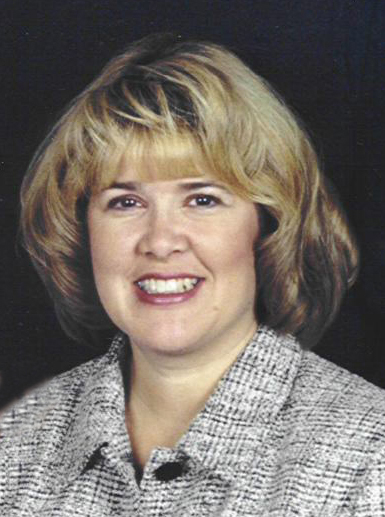
JACKSONVILLE, Fla. (BP)–Dripping with humidity and exhaustion, I sat under the full sun in front of Woodside Hospice in Pinellas Park, Fla., for nearly 13 days in March 2005. My assignment had become one of waiting and watching for the right thing to happen. I waited in vain.
Terri Schiavo was just a few years younger than me when she died March 31 of last year. Several years ago most people would not have recognized her name. Now her name is synonymous with very public pain and the classic struggle between right and wrong.
Except that many people didn’t get the right and wrong part. Unbelievably, the case evolved into a cause celebre for husband’s rights, healthcare woes and angst over the American judicial system.
Tasked with covering the story for more than two years, I quickly came to the conclusion that despite Terri’s peculiar situation and the bewildering dilemma her parents encountered when they tried to fight for her right to rehabilitation — and at the end, her simple right to life — my obligation to stay true to the Christian worldview would be tested time and again.
The notion that I would somehow include in each of my reports the perspective of her husband, Michael Schiavo, and his so-called right to terminate his wife’s life, hit a wall each time I held it up to my greater responsibility.
By the time I had read volumes of court transcripts, sat in court and listened to Michael Schiavo’s attorney, heard Schiavo speak at press conferences, and read excerpts of the attorney’s book representing his worldview, the coverage strategy I employed seemed elementary to me.
My convictions led me to a conscientious approach to reporting that made me wary of seeking to promote views which openly condoned adultery and euthanasia. Simply put, I would not actively seek to give ink to Michael Schiavo’s distorted views of love and fidelity — and would not knowingly engage in unfruitful interviews with Schiavo’s attorney, whose pro-euthanasia views had been clearly established.
One interview I stumbled into spoke multitudes to me. Following a press conference in the courtyard of the Pinellas County Courthouse in February ’05, attorney George Felos told me Michael Schiavo’s wedding vows were not as important to Terri as was his view that somehow she deserved to die of starvation.
Felos went on to explain, in the one-on-one interview, that people whose spouses have Alzheimer’s disease, or who have been involved in a catastrophic accident, should not be condemned for seeking out a romantic relationship. Felos told me the view that one’s marriage vows should not be broken regardless of circumstances is narrow and judgmental and had caused Michael grief.
Up to that point in covering the case, I had chosen to strictly report the news and write related features. I had not offered an opinion, per se. After Felos clarified his moral views, I believed I was no longer bound to try and offset every move on the part of Terri’s pro-life parents and pro-life attorney with Felos’ or Schiavo’s opinions.
For me, the case had become a cause and life was worth fighting for. In fact, I worked feverishly with a conviction I needed to do my part to make sure people got the facts straight in a complicated and twisted story that was difficult to report.
All over the world, Terri’s name has become either an example used to describe folks’ strong aversion to “government intervention,” or it is used to defend or attack a conservative, pro-life position regarding end-of-life treatment and euthanasia.
The debate has not been all bad, or one-sided. Even the prestigious Poynter Institute for journalists, headquartered in St. Petersburg, has run op-ed pieces which openly support the value of the dialogue generated by Terri’s untimely death.
Out on the hot pavement in front of the hospice, hundreds of television and print reporters were forced to wait — and when a reprieve did not come — give witness to the grief of many who recognized the gravity of the issue.
Contrary to the many reports I flinched at, the site at Pinellas Park should never be referred to as a media circus. It cheapens what happened when one young woman’s life hung in the balance there for 13 days.
Sure, there were the attention-seekers and the bizarre, the disturbed and the lonely, but mostly, there were families from local churches; individuals and groups of people who drove in from afar to pray; and, ever present, Terri’s own family members and friends.
The media were at times as conflicted and disappointed as were the family members who invited the media to witness this historic event. A young couple from Britain, a brash anchorman from Argentina and Sean Hannity of Fox News — among others — scrambled to keep up when each “ironclad” solution failed to get Terri the basic nutrition and hydration she needed to survive.
The morning Terri died I was busily banging away at the keyboard to finish a story I began to write at about 5 a.m. after taking a two hour nap on returning to my room from the hospice.
A call on my cell phone alerted me to her death and I raced to clean up and return to the hospice to claim a seat in the dirt so I could both record and photograph what was Terri’s family’s final press conference in front of the hospice.
My heart raced as hot tears flowed down my cheeks and into my photographer’s vest where I dug for my press credential to clear security. Reporting one last time to “Terri’s camp” where the print media claimed squatters’ rights outside the television tents and air-conditioned trailers, I was surprised to see reporters, television anchors, cameramen and tech people expressing genuine grief.
Though many of the secular media are hardened, few scoffed or snorted when they came face to face with the tragedy of a person being starved to death — realizing it took so long because Terri was otherwise healthy. In all of our experiences, both public and private, with dying, this “deathwatch” had been inexplicable.
Had Terri expired more quickly, I don’t think the impact would have been the same.
It will take me a long time to shake the feeling of utter disappointment, of failure, when I think about Terri Schiavo. She was much more than a case, she became the cause which forced us all to contemplate the precious nature of human life.
–30–
Joni B. Hannigan is managing editor of the Florida Baptist Witness.













